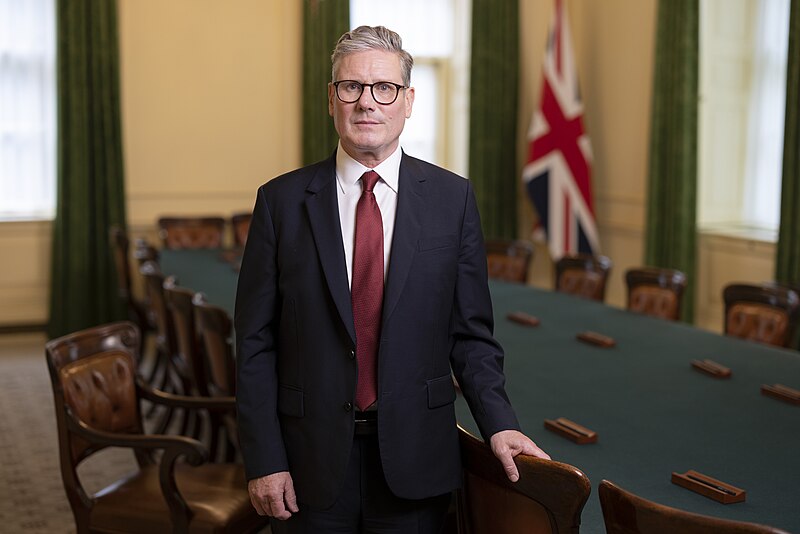
Prime Minister Keir Starmer acknowledged on Tuesday that he would need to make difficult and unpopular decisions, including the potential for "painful" taxes on the
wealthy and spending cuts, as part of efforts to address the numerous challenges facing Britain, which he attributed to years of Conservative mismanagement.
Speaking from the rose garden of his Downing Street office—a site previously linked to controversial COVID parties under a former Conservative administration—Starmer vowed to break from the usual political practices. He cautioned voters that while he is committed to rebuilding the country, the problems inherited from the previous government would likely worsen before they improve.
Since his landslide election victory in July, Starmer has pledged to restore British society, noting that recent anti-migrant riots highlighted deep divisions, which he blamed on the Conservative Party's embrace of populism.
Starmer also accused the previous government of leaving him with an unexpected £22 billion ($29 billion) financial deficit. This fiscal gap, he said, has forced him to make difficult choices, such as limiting fuel payments to the elderly.
The opposition Conservative Party has criticized Starmer's Labour Party for allegedly exaggerating the fiscal challenges to justify tax hikes after campaigning on a promise not to increase certain taxes on working people.
Starmer insisted that he would honor his commitment to avoid raising taxes on working people, but warned of short-term pain and "unpopular decisions" necessary for the long-term benefit of the country.
"There is a budget coming in October, and it's going to be painful. We have no other choice ... Those with broader shoulders should bear the heavier burden," Starmer said, referring to a fiscal statement scheduled for October 30.
He stressed the importance of honesty in confronting the difficult choices ahead, acknowledging that "things will get worse before they get better." His audience included apprentices, teachers, nurses, small business owners, and firefighters.
The Downing Street rose garden previously made headlines when former Prime Minister Boris Johnson and his staff were found to have held parties during the COVID lockdowns—events that Starmer said eroded public trust in politicians.
Conservative leadership contender Kemi Badenoch, who also serves as the party's policy chief for housing and communities, criticized Starmer's speech, calling it based on a "dishonest analysis" and accusing him of managing voters' expectations for a "decade of decline."
PRISON SHORTAGES
Starmer, who previously served as director of public prosecutions, expressed disbelief that as prime minister, he had to count available prison places to manage those responsible for riots targeting Muslims and migrants.
"Not having enough prison places is about as fundamental a failure as you can get. And those people throwing rocks, torching cars, making threats—they didn't just know the system was broken, they were betting on it, gaming it," he said.
Starmer also criticized the previous Conservative government for failing to address societal issues, accusing them of focusing on the "snake oil" of populism, which has deepened divisions in the country.
The economy Starmer inherited has shown sluggish growth, though there are signs of improvement. Public sector net debt is at its highest level since the early 1960s, and the tax burden is on track to reach a nearly 80-year high.
Finance Minister Rachel Reeves has indicated that the projected overspend in public finances will require cutting billions of pounds in spending.
"Those who made the mess should have to do their bit to clean it up," Starmer said, referencing the new powers given to the water regulator to impose tough fines on companies responsible for allowing sewage into lakes and rivers. Photo by Prime Minister’s Office, Wikimedia commons.



































